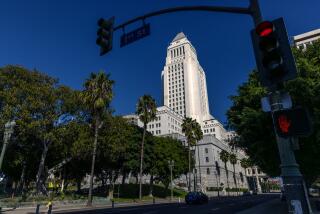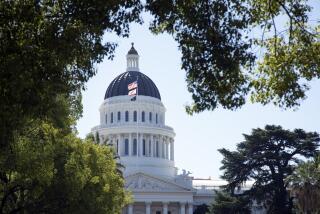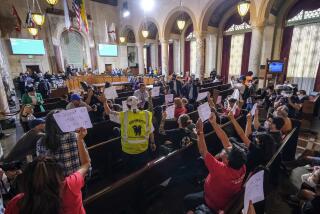For now, no changes to the work of California Legislature over coronavirus concerns
SACRAMENTO — Leaders of the California Legislature said Tuesday they have no plans to impose coronavirus-related restrictions on the work schedules of lawmakers or the operations of the Capitol, though they said they are closely watching events across the state.
At least 10 people have tested positive for COVID-19 in Sacramento County, home to the seat of California government. Members of the Senate and Assembly generally work in the state Capitol from Monday through Thursday most weeks, traveling to and from their districts twice a week. Lawmakers are scheduled to take an 11-day spring break at the beginning of April.
“We are monitoring COVID-19 closely and are following the California Department of Public Health’s recommendations on large gatherings,” Senate President Pro Tem Toni Atkins (D-San Diego) said in a written statement on Tuesday. “At this time, the Senate is not recommending any changes to the way it conducts its business but understands the fluidity of the situation and may issue further guidance if needed.”
A spokesperson for Assembly Speaker Anthony Rendon (D-Lakewood) echoed Atkins’ comments. Neither leader offered information on whether contingency plans are being made should conditions change or what those plans might entail.
The state’s recommendations on “mass gatherings,” issued on Saturday, call for additional precautions in counties “with evidence of community transmission” of coronavirus. Also recommended are efforts to rethink “non-essential events” and provide “alternative options for attending the event via phone, video, or web applications.”
While a growing number of private businesses have changed the workdays of their employees and placed limits on travel or in-office hours, legislative business proceeded as usual on Tuesday in Sacramento. Eight public hearings were scheduled and several lawmakers posted photos on social media of routine meetings with constituents and representatives of varying interest groups. Lawmakers who discussed coronavirus in their posts offered tips to their constituents or sought to quell rumors about cases reported in their communities.
The state Capitol, which was completed in 1874 and expanded in 1951, is open to the public during business hours and on weekends. School children frequently tour the building and some were seen in its hallways this week.
Beyond elected officials, the Legislature employs more than 2,000 people, most who work in and around the state Capitol. On Wednesday, state and local health officials will provide staff members with an overview of the coronavirus situation, according to an email sent to Senate employees from Senate Secretary Erika Contreras. It also provided suggestions on how to limit in-person interactions.
“Instead of physical meetings with constituents, lobbyists, advocates and others, consider offering conference calls or utilizing ... alternative technology platforms,” Contreras wrote.
The building also houses the executive offices of Gov. Gavin Newsom, who said Tuesday that his administrative staff is considering keeping safe personal distance as part of their own response to minimize the threat.
“What’s nonessential should be nonessential at this moment, so that we can minimize the impacts on things that are essential,” Newsom said.
More to Read
Sign up for Essential California
The most important California stories and recommendations in your inbox every morning.
You may occasionally receive promotional content from the Los Angeles Times.











